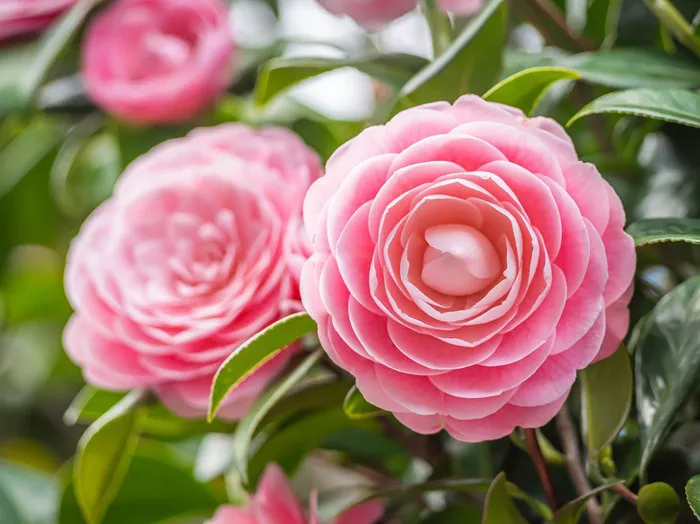Coffee grounds are a popular organic material that can be beneficial for various plants due to their rich nutrient content. Many gardeners use them as a natural fertilizer or soil amendment. Below, we explore which flower plants benefit the most from coffee grounds, detailing how and why they thrive with this organic addition.
1. Understanding Coffee Grounds as a Soil Amendment
Coffee grounds are a byproduct of our daily coffee brewing, rich in essential nutrients that can greatly benefit plants. Here are key points to understand their composition and benefits:
Nutrient Content: Coffee grounds contain nitrogen, which is crucial for plant growth, as well as smaller amounts of phosphorus and potassium, which support flowering and overall plant health.
pH Levels: Fresh coffee grounds are acidic, which is beneficial for acid-loving plants. However, used coffee grounds are close to neutral in pH, making them suitable for a wider range of plants.
Organic Matter: Adding coffee grounds to the soil improves its structure, enhances aeration, and increases its water retention capacity.
2. Benefits of Using Coffee Grounds for Flower Plants
Coffee grounds provide several benefits that are particularly advantageous for flower plants:
Enhanced Soil Fertility: The nitrogen in coffee grounds acts as a natural fertilizer, promoting lush, green growth.
Improved Soil Structure: The organic matter in coffee grounds helps improve soil structure, making it easier for roots to grow and access nutrients.
Pest Deterrent: Coffee grounds can deter pests like slugs and snails, protecting delicate flowers.
pH Modification: For plants that prefer acidic soil, coffee grounds can help maintain the desired pH level.
3. Flower Plants That Benefit from Coffee Grounds
A. Roses (Rosa spp.)
Roses are one of the most popular flowers that thrive with coffee grounds. They benefit from the additional nitrogen and improved soil texture.
- Growth and Bloom: The nutrients in coffee grounds encourage vigorous growth and abundant blooms.
- Application: Mix coffee grounds into the soil around the base of rose bushes or use them as a mulch to help retain moisture and suppress weeds.
B. Azaleas (Rhododendron spp.)
Azaleas are acid-loving plants that naturally thrive in soils with lower pH levels, making them perfect candidates for coffee grounds.
- Soil Acidity: The acidity of coffee grounds helps maintain the optimal pH level for azaleas.
- Nutrient Boost: The added nutrients from coffee grounds support healthy foliage and vibrant flowers.
- Application: Sprinkle used coffee grounds around the base of azaleas and lightly mix them into the soil.
C. Hydrangeas (Hydrangea spp.)
Hydrangeas are another group of plants that benefit significantly from coffee grounds, especially those varieties that produce blue flowers in acidic soils.
- Color Enhancement: The acidity in coffee grounds can help hydrangeas maintain or achieve blue hues in their flowers.
- Growth Stimulation: The added nitrogen promotes strong, healthy growth.
- Application: Apply coffee grounds around the drip line of hydrangeas, ensuring they are mixed into the soil to avoid forming a crust.
D. Camellias (Camellia spp.)
Camellias, known for their stunning blooms, thrive in acidic soils enriched with organic matter.
- Soil Acidity: Coffee grounds help maintain the acidic soil conditions that camellias prefer.
- Improved Drainage: The grounds enhance soil structure, improving drainage which is crucial for camellias.
- Application: Use coffee grounds as a mulch around camellia plants or incorporate them into the soil during planting.
E. Gardenias (Gardenia jasminoides)
Gardenias are fragrant, flowering plants that flourish in acidic soils with good drainage.
- Enhanced Blooms: The nutrients in coffee grounds support prolific blooming and lush foliage.
- Pest Control: Coffee grounds can help deter pests that may otherwise damage gardenias.
- Application: Scatter coffee grounds around gardenia plants and mix them into the soil, ensuring not to disturb the roots.
F. Rhododendrons (Rhododendron spp.)
Rhododendrons, like azaleas, prefer acidic soils and benefit from the nutrient boost provided by coffee grounds.
- Optimal Growth: The additional nitrogen supports robust growth and vibrant flowers.
- Soil Acidity: Coffee grounds help maintain the soil acidity that rhododendrons need.
- Application: Apply coffee grounds around the base of rhododendrons and gently mix into the topsoil.
G. Lilies (Lilium spp.)
Lilies benefit from the organic matter and nutrients provided by coffee grounds, which can enhance their growth and flowering.
- Nutrient Supply: The nitrogen in coffee grounds promotes healthy foliage and strong stems.
- Soil Improvement: Coffee grounds improve soil texture and drainage, beneficial for lily bulbs.
- Application: Mix coffee grounds into the soil at the planting site or use as a top dressing around established plants.
H. Marigolds (Tagetes spp.)
Marigolds are hardy flowers that can benefit from the nutrients and soil conditioning properties of coffee grounds.
- Pest Deterrent: The coffee grounds can help deter pests that might otherwise affect marigolds.
- Enhanced Growth: The additional nutrients promote lush, healthy growth.
- Application: Incorporate coffee grounds into the soil or use as a mulch around marigold plants.
4. Tips for Using Coffee Grounds in the Garden
While coffee grounds can be beneficial, it’s important to use them correctly to avoid potential issues. Here are some tips for effective use:
- Moderation: Use coffee grounds in moderation to avoid over-acidifying the soil or creating a crust that prevents water penetration.
- Mixing with Soil: Always mix coffee grounds with soil or compost rather than applying them directly on the surface.
- Composting: Consider adding coffee grounds to your compost pile to balance out other organic materials and create a nutrient-rich compost.
- Watering: Ensure adequate watering, as coffee grounds can sometimes absorb moisture and dry out the soil surface.
Conclusion
Using coffee grounds in the garden can provide numerous benefits for flower plants, especially those that thrive in acidic conditions. By understanding which plants benefit the most and how to apply coffee grounds effectively, gardeners can enhance the growth and beauty of their flower beds. Whether used as a soil amendment, mulch, or compost ingredient, coffee grounds offer a sustainable and effective way to support vibrant, healthy flowers.


